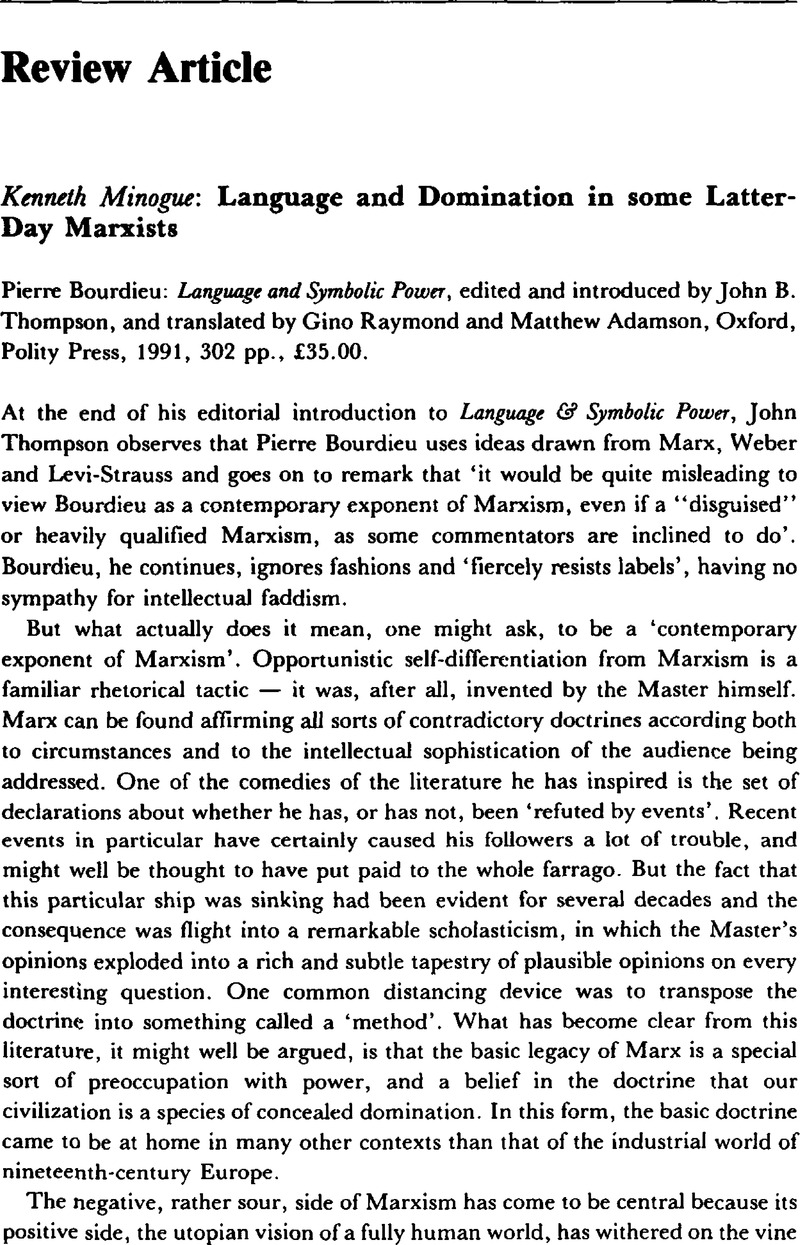No CrossRef data available.
Article contents
Language and Domination in some Latter-Day Marxists
Published online by Cambridge University Press: 28 March 2014
Abstract

- Type
- Review Article
- Information
- Copyright
- Copyright © Government and Opposition Ltd 1992
References
1 Lukes, Steven, Marxism and Morality, Oxford University Press, 1985;Google Scholar ‘Can a Marxist Believe in Human Rights?’ in Moral Conflict and Politics, Clarendon Press, Oxford, 1991, pp. 173–88. Cf. ‘The Principles of 1989’ in the same volume, pp. 307–14.
2 The Theses on Feuerbach would seem to throw a great deal of light on the central inspiration of Bourdieu's thought, and the sixth in particular, which denies any reality to the individual and dissolves human experience into social relations would seem to be where Bourdieu begins, and also where he ends.
3 Spender, Dale, Man Made Language, Second Edition, London. Harper Collins, 1990 Google Scholar. The first edition was published in 1980.
4 Spender, op. cit. p. 25.
5 Spender, op. cit., ch. 5.
6 See, amid a large literature, Searle, John, Speech Acts: An Essay in the Philosophy of Language, Cambridge University Press, 1969.CrossRefGoogle Scholar
7 See, for example, Leech, Geoffery, Semantics: the Study of Meaning, Harmondsworth, Penguin, Second Edition, 1981, especially ch. 16.Google Scholar




